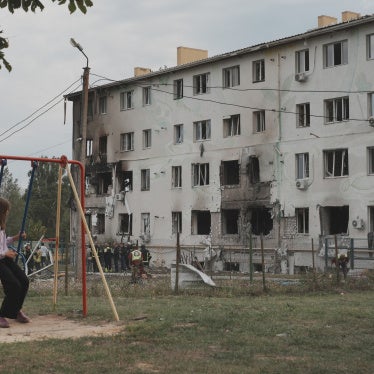(Moscow, December 16, 2011) – The Russian authorities’ investigation into the murder of a leading independent publisher in Dagestan should be prompt and thorough and should bring those responsible to justice, Human Rights Watch said today.
Gadzhimurad Kamalov, founder and publisher of Dagestan’s leading independent weekly, Chernovik, was killed close to midnight on December 15, 2011, in Makhachkala, the capital of Dagestan. Kamalov had been working late and had stepped out of Chernovik’s office to see off a visitor when a masked gunman opened fire, showering the publisher with bullets. According to police reports, after firing 14 shots at Kamalov, the gunman and a number of accomplices fled in two cars. Kamalov died on the way to the hospital.
December 15 is the day of remembrance in Russia for journalists who died while performing their jobs, including those targeted and killed because of their work.
“This is a tremendous blow for the independent press in Dagestan,” said Tanya Lokshina, senior Russia researcher at Human Rights Watch. “There is hardly any doubt that Kamalov was killed because he was doing his job, in a region that is now known as Russia’s most unstable.”
Kamalov founded Chernovik in 2003 and worked as its chief editor in 2005 and 2006, remaining as its publisher. Chernovik eventually became very popular, with the second-largest print run in Dagestan. It was known for its editorial independence, investigative reporting, and special focus on such sensitive topics as corruption and human rights abuses by law enforcement and security agencies.
Chernovik’s journalists have been the targets of harassment and threats, including through criminal prosecution of its four journalists and the chief editor at the time, Nadira Isaeva, on charges of extremism and insulting state officials. After a long legal battle, a court in Makhachkala acquitted them early in the summer of 2011.
Isaeva was the recipient of the International Press Freedom Award by the Committee to Protect Journalists in 2010. She was forced to leave the newspaper earlier this past summer following a vicious anonymous online campaign against her, which she has said she believes was initiated by local security officials.
In September 2009, leaflets with death threats against eight local journalists, including Kamalov, four lawyers, and four human rights activists in Dagestan appeared in Makhachkala. Their anonymous authors called for the “exterminat[ion of] bandits and vengeance for [killed] policemen.” When commenting on the “death list,” Kamalov told the news media that he thought the security services were behind it.
According to statistics gathered by the Committee for Protection of Journalists, the North Caucasus region of Russia continues to be one of the most dangerous places for journalists in the world. Despite numerous promises by the Russian leadership to create normal working conditions for activists and journalists in the region, killings and physical attacks on investigating journalists continue.
The governmental criminal investigation body looking into Kamalov’s death has already stated that one of its main theories is that he was killed because of his work as a publisher and journalist.
Human Rights Watch called on the Russian authorities to abide by their pledge to ensure full accountability for attacks on journalists.
“It’s good that the official investigation recognizes that Kamalov could have been targeted because he did his job, but too many investigations into killings like these in the North Caucasus have led nowhere,” Lokshina said.







